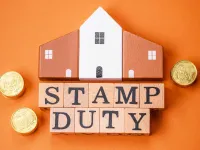Property in buildings over five storeys
Due to the new Building Safety Act 2022, we will no longer be acting on any conveyancing matters which involve a flat in a block of over four storeys (11 metres) in height.
The law is complex on this right now, and until further guidance is issued, we will not be acting on these types of matters.
As an approved Conveyancing Quality Scheme (CQS) practice, our high quality and professional conveyancing team are experienced at guiding you through the entire property buying process.
Engaging the right conveyancing team is a crucial part of making sure that the process of buying a property goes smoothly.
There are a number of key factors to bear in mind.
- Clear communication is key
At Winston Solicitors, we pride ourselves on ensuring that we keep our clients up to date with timely information as we take them through the property buying process. At every stage of the transaction, we ensure that we clearly explain what is happening and what this means for our clients.
At the same time, we also encourage all our clients to be as transparent as possible with us about the property buying process from their point of view. This ensures that we have all the relevant facts as we proceed - for example if the purchase depends on a lengthy chain, or if you are not going to be available to make decisions at critical points in the process.
- Have a clear understanding of costs
This open communication between client and conveyancing solicitor begins with a clear estimate. This quote should cover all costs and any expenses. At Winston Solicitors, we will always provide you with a fixed priced conveyancing quote, by email, online or telephone. Unless the transaction itself is different from the one quoted for, the price we quote will not change.
A final word on conveyancing costs. While it always makes sense to ask around for quotes, be aware that quotes that appear cheaper may not include hidden costs, disbursements and VAT.
Wherever there is any alteration to the quoted price, we will always provide you with a clear explanation for the change. We also provide an additional fees sheet with our client care letter.
- Have everything you need to proceed
Some key paperwork – for example a mortgage confirmation - may take longer than have anticipated to come through. With this in mind, we suggest that you ensure that all the relevant paperwork that you require for the conveyancing process is ready before you engage a solicitor.
This paperwork ranges from basic information such as the contact details of your estate agent, through to key documents relating to the property itself. These might include any building regulations approval notices or building regulations compliance certificates.
The typical steps to buying a property
Our experienced team are on hand to take you through the entire conveyancing process, from instruction to completion and beyond. However, to give you a quick overview, here is how a typical conveyancing process might proceed with us.
- Arrange your mortgage.
- Instruct us to be your conveyancing solicitor.
- Make an offer on a property.
- Inform us once the offer is accepted.
- Confirm we have received a memorandum of sale (MOS).
- Provide us with any questions you have about the property.
- Set a timeframe and agree a provisional completion date.
- We review the draft contract, legal pack and search results.
- Provide us with the final details your mortgage.
- We send you a full report covering searches and your mortgage offer, for review.
- We send you the final contract and transfer form to read and sign.
- You send your deposit to us.
- All parties agree a date for completion.
- You confirm building insurance.
- We exchange contracts.
- Completion day.
- We arrange any Stamp Duty Land Tax payment, and register you as the new owner with the Land Registry.
Freehold or leasehold?
This is an important distinction that some property buyers sometimes find confusing. The difference between a freehold purchase and a leasehold one has a significant impact on what you are actually buying or selling. Our experienced team are on hand to take you through the entire conveyancing process, from instruction to completion and beyond.
Questions to ask your conveyancing solicitor
To help you to choose the right conveyancing solicitor, we recommend that you ask them the following questions:
- How much will the entire process cost? Are there any hidden fees?
- When will I be expected to pay?
- How long will the process take?
- Who will be my key contact within the team?
- How will you keep me up to date on progress?
- What information can I give you now to make sure everything runs as smoothly as possible?
- If the sale does not complete, what will I need to pay?
Or use the contact form below to contact us directly.
Find out what other services we offer at our Leeds solicitors.








